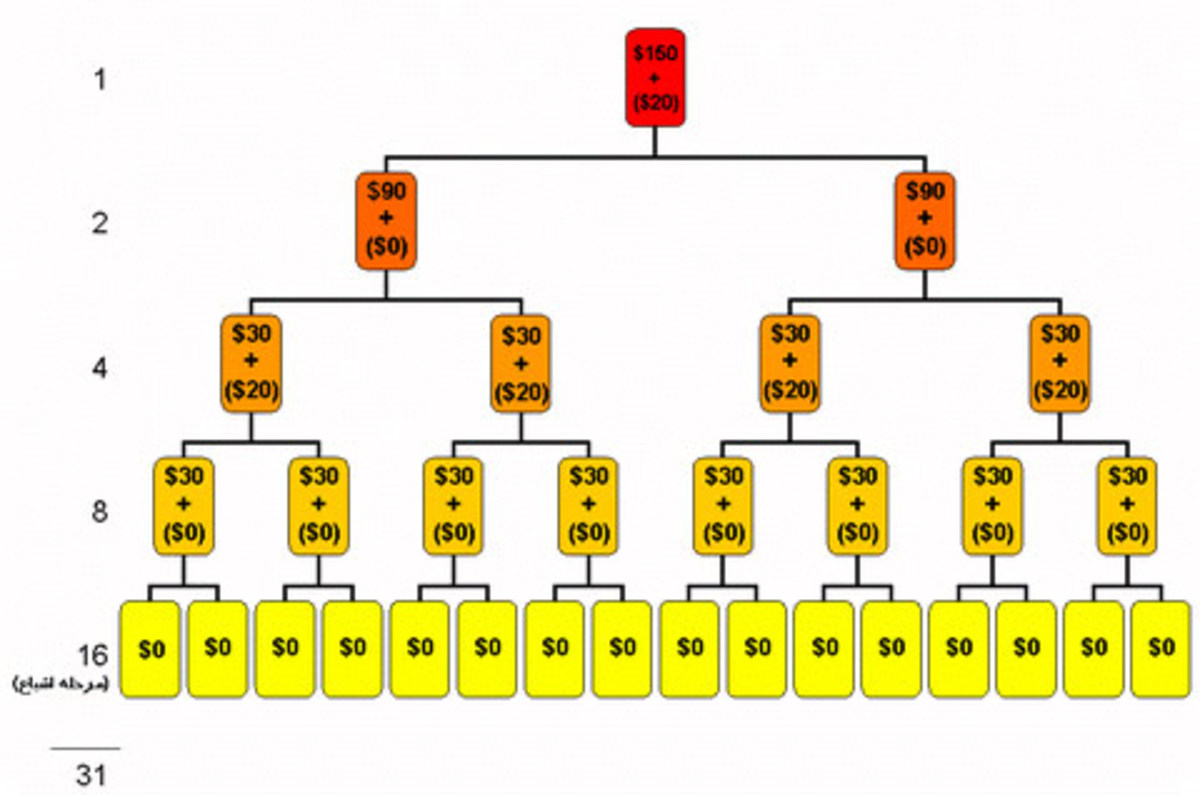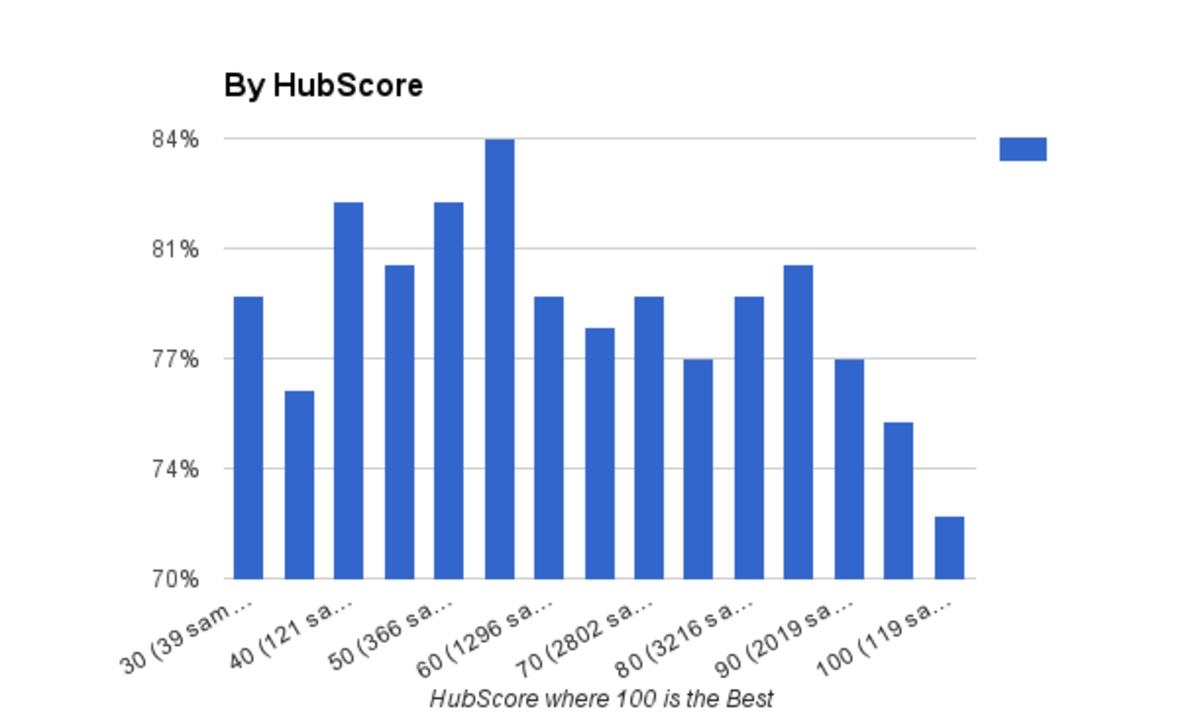Can You Protect Yourself from Online Scams?
Scams, scams, scam everywhere! Scams, they come in various form but with only one target or goal which is to collect your hard earned money. The simplest description of scam is a dishonest scheme or fraud designed to swindle an unsuspecting victim.
Of all forms of scams, the worst is the internet scams and this is where this article is going to concentrate upon. The problem with internet scam is that because every business conducted on the internet is actually taking place between an individual and his computer and nothing else. Whatever happens on the other end is simply beyond your control. Another problem is that due to the invisibility nature of internet, someone can easily assume any identity to cause untold havoc and mayhem to any of his/her chosen victim/s.
And that is where the whole problem starts. You are simply on your own from the beginning and painfully to the end. Let’s say you are involved in some referrals program or some high yield investment program or maybe you read an online advert on some website, or some harmless email suggesting a nice business proposal or something like that or you receive some phone call or SMS with some hopeful or interesting business deal or a notice that you just won a lottery which you can vividly remember you never entered for which you are now required to make some initial payments to facilitate the transfer of the monetary prize to your bank account and you start feeling like this is it! You then send the money to the other party using any of the numerous online payment processors and then you wait. Will they respond? Are they for real? Will these people I am giving my money cooperate and do what I ask them of? How genuine is this business proposal and also this company I am dealing with? Will everything turn out to be scam? How am I sure I am not being scammed again?
These and many other dark questions are the terrible thoughts that will be going through your mind as you embark upon making another online payment or involve yourself in one other internet business. The problem with internet scam is the fear it is always creating in the minds of the people which is the fear of being scammed because genuine business opportunities are known to have also been lost in the process too. Many strategies have been adopted and developed and put in place to curtail the rising rate of internet scams but the problem is that the scammers are also getting wiser and they are always ready to improvise and refine their methods. Some scammers are out there waiting as poachers just to steal your credit card details when you are least or not suspecting and rob you blind from thence. To stop such dubious people, online payment processors like PayPal carry out their transactions just with email address without revealing the credit card details. Also, virtual credit cards have been introduced but the scammers have also flown to that area to destroy whatever good that could come from that innovative move. There are now many scammers parading themselves as genuine providers of virtual credit cards. You just have to very careful.
The rising rate of internet scams these days makes it appear as it these scammers are winning the war being waged against them. But it is not supposed to be that way. In fact, scammers are so powerless and they only depend on you making certain mistakes or committing certain blunders for them to carry the day. So to avoid being scammed and to be fully protected, you need to realize that the solution begins with you.
Let’s see some useful things you can do to put these devilish internet scammers out of business today!
Always read in between the lines
Many scams could have been avoided if the victim took the time to read in between the lies. You have to be careful and you have to form the habit of taking your time to read over the whole thing over and over again. You have to read the fine print carefully. But it is not only reading, you have to also be able to observe and remember important details or warnings too. For example, Liberty reserve, an online payment processor, specifically stated that they will always contact their members only by referring their first name. Now what do you make of this email which somehow ended up in my inbox:
Dear Liberty Reserve user, you are receiving this e-mail because you are registered with Liberty Reserve S.A.
We have been notified that you are using e-currency for exchanger services and/or investment Programs.
In order to continue successfully dealing with them, your attention and action is required. Please follow the below mentioned Instructions for your Liberty Reserve account.
1. Login to your LR account, go to Merchant Tools.
2. Click on Create new API
3. Enter the following entries
3.1 API Name: Merchants
3.2. Sec Word: Merchants 1
4. Tick ENABLED
5. Tick TRANSFER
6. Tick BALANCE
Enter your PIN and submit to save the configuration. Please reply to this e-mail with your LR account number after new settings.
Thank you for choosing Liberty Reserve for your electronic payment gateway.
Liberty Reserve S.A.
Parque Empresarial Forum II
Torre D. Piso 4
San José, Costa Rica
Postal Code: 10903
Obviously that message didn’t come from liberty reserve. The idiots! They even said thank you! Don’t they know that they cannot fool all the people all the time? Do you know what would have happened if I had complied with their directives? They would simply clear out whatever is in my Liberty Reserve account within the twinkle of an eye! But do you know what gave them away in the first place? It was the first line of the message! It read dear Liberty Reserve user. It didn’t mention my first name as defined in the liberty reserve fine print. I don’t need to tell you that I deleted that message as fast as I can!
Have you ever received such a similar email? You just have to be very careful and very observant too. So many scams can easily be recognized and so many ugly situations avoided simply by the supposedly victim having the good luck of taking his time to read in between the lines. Most scams can be uncovered by the language which the scammers are using and the only way you can discover this is by reading through the whole thing. Most times they may fail to get their grammar and spellings correct but don’t be fooled because there are some professional scammers out there who could write and write very well. But one thing I know is that if you allow your instincts and your better judgment to guide you, you will easily see through the whole grand scheming, the haste and sometimes the wrong grammar with which the whole message is being put across to you.
Another thing that could save you from scam if you adopt this method of reading the fine print is that some amount of time will be gained and such time will be used in evaluating the business proposal. You will also buy enough time to research some more about the juicy proposal coming to you. Since most scammers depend on you acting immediately and thinking later, you have just succeeded in thwarting their evil plans for you by reversing that pattern to your own advantage just because you took the pains to read in between the lines.
Fight the greed
Yes I know this. And you know it too and yes, the scammers know it as well. We all know that greed is the beginning of all scams. The scammers are greedy so they always want more. The victims are greedy because they also hunger for more. I have read about some Nigerian fraudsters’ a.k.a 419ners who in a bid to glorify their ugly trade and exempt themselves from the damages and havoc they are causing have argued that it is only the greedy person that can be scammed. In a way, that is so correct but if you really look closely, you may find out to your utmost dismay that there is that little greed in all of us. Okay let me say in most of us anyway. Greed is that tendency in humans to have more than is necessary or required and in trying to satisfy that very human urge, you may find yourself regrettably holding the dirty end of the pole!
I am not saying that you should be so satisfied with the little you have especially if you can get more after all that is entirely your decision to make, I am only saying that you should make sure that the driving force behind this your latest desire and readiness to involve yourself in some form of fraudulent and/or bogus financial activities is not being powered and fired and driven by that horrible but silent-working Mr. Greed inside!
Watch your gullibility level
What do you believe in? Who do you believe in? What you believe in can actually save you from certain kinds of scam. From my online experiences with scams, one area I know where your gullibility can become a very serious problem, especially if you don’t take your time, is the area of High Yield Investment Program or HYIPs. This is because you will certainly see many bogus, incredible as well as ridiculous and enticing Get Rich Quick offers and before you know what is happening, you have just been scammed!
If you are the skeptic type, you can go and rest because your ‘faith’ has set you free. But don’t rejoice because you could have just missed the bus too but for the purpose of protecting yourself from scam, I think you have got the natural protection.
But as for you Mr. Gullible you just have to watch it! What you believe in together with who you believe in can actually save you from certain kinds of scam, it can make the big difference between you staying scam-free or otherwise. I don’t know if you know it but even your friend can be used against you in the dangerous game of scam especially in the situation when such a friend is a victim too. I remember when I used to think that certain types of people are incapable of doing certain kinds of fraudulent acts but that was then. Now, I know better. Scammers come in different forms, in all races and with different faces. Listen to me, you Mr. Gullible, whenever you hear this statement, “don’t believe everything you read on the newspapers”, just know that you are the one being addressed. You better watch that very tendency of yours that makes it easy for you to believe everything you see and hear because it could also make it easy for you to sign away everything you have ever earned and/or owned into the waiting hands of these marauding devilish internet scammers leaving you with nothing but untold tales of woes and regret to tell and do you know the worst part? One thing you must know is that people are not so eager to help out someone whom they view as being responsible for bringing his/her woes upon his/herself. It’s a fact.
Ask questions
Ask questions. In fact, a lot of questions. Develop the habit of researching such proposals first. Be ready to ask questions and don’t even care if the questions sound foolish or not after all it’s your money we are talking about here...your hard earned money! Don’t just dive in immediately because you “see” an important goldmine there and you don’t want others to know…at least for now. By asking questions, you may suddenly discover from the experiences of other victims what type of scam you were just about to walk into. By asking lots of questions and by researching, you will surely sieve the truth from the several lies put forward by some of the scammers too that are masking as genuine. In the process of asking questions too, you might also discover the nature of the scam you just walked away from too and hence you will be prepared as well as educated on such types of re-occurring scams and how to avoid them.
There are many forums where you can find discussions concerning a particular online business or prospects. Join those forums and learn from other people’s experiences. That is one sure way you in which you can protect yourself and others too from online scams so please ask questions first!
Get ready for the psychological wars
Scammers are great professionals. They are great psychologists and they are great opportunists too. They understand the human mind and they know how to twist their victims’ mind to their sole wicked advantage. I have read about scammers who will even go as far as establishing some level of friendship with their victims until all manner of suspicions or doubts are removed and then they strike!
There are also scammers who will even make everything look as if they are the victim so as to attract cheap sympathy to themselves. They know how much people value truth and how easy it is to use truthfulness to disperse doubts and suspicions. They know how to weave stories and spin yarns just to get your much needed attention. These ones know the impact of sympathy and truth and how to use it for their own advantages. Most times, our sympathy will even short circuit our logical thinking pattern thus distorting our own thoughts while superimposing the make-belief scenes these scammers desperately want us to see and if this is the case, who do think is going to benefit at the end of the day?
Watch those adverts! I know advertisements could save you and open some financial breakthroughs for you but I also know they could also harm you irreparably! Scammers know the importance and power of adverts. Like Hitler once said, tell a lie long enough and loud enough and people will believe it. The more you see those photo shopped, flashy, bright and shinning adverts streaming and running across your computer screen, the more likely you will start thinking that “it could be true”.
Don’t think scammers don’t know this fact!
Be careful with your passwords and other security details
In the virtual world of the internet, almost every transaction involves passwords and Personal Identification Numbers or PINs. With the right security details such as passwords, anyone anywhere can assume any identity and carry out any form of transaction as long as the passwords grant him/her the access and rights to do so.
Bottom line: be careful with your passwords and other security details. Watch how you go about revealing those important details to certain people online and offline because they might just use that information against you!
Don’t scam
And last but not the least, don’t scam. Have you ever imagined a wonderful it is going to be if there were no scammers and scams? Do you know that one more scammer today increases the number of scammers worldwide by tenfold? If that’s the case, think about one less scammer…
Jesus Christ taught us that everything we are doing in this life is nothing but a great game of giving and receiving.
Listen. “Whatsoever a man soweth that shall he also reap.”
This means that whatever man sends out in word or deed, will return to him; what he gives, he will receive. If he gives hate, he will receive hate; if he gives love, he will receive love; if he gives criticism, he will receive criticism; if he lies he will be lied to; if he cheats he will be cheated.
Permit me to add that if you scam (or even if you think of scamming someone), you will be SCAMMED!






